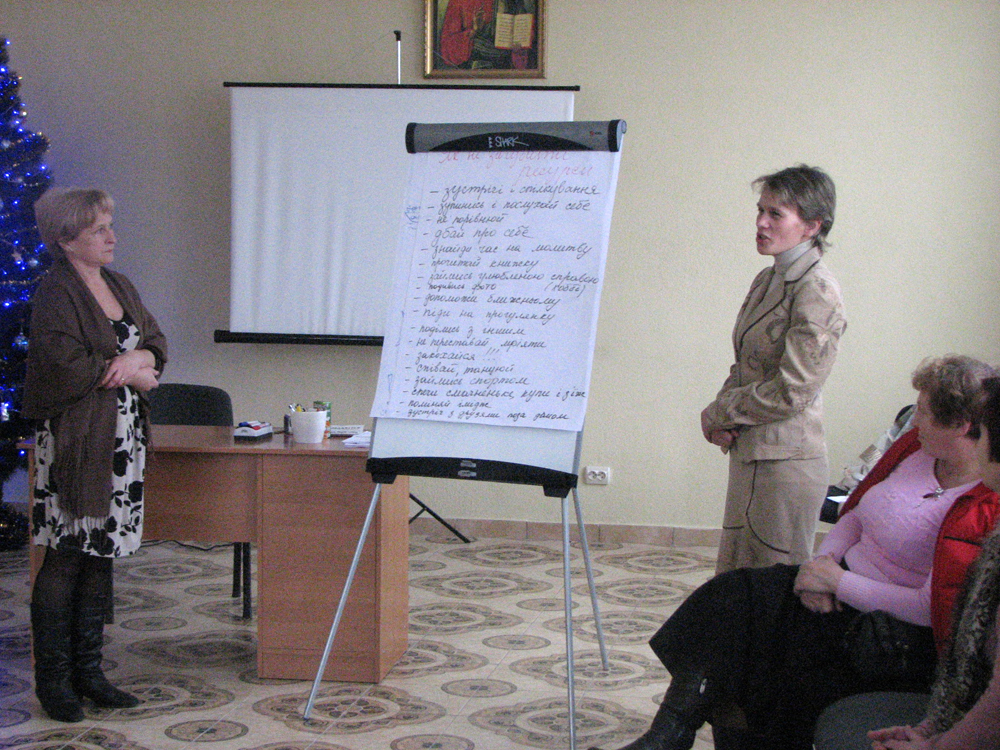
14.02.12
Over the past several weeks Caritas Ukraine conducted a second series of seminars entitled: The Family of a Person with Special Needs: How to find and renew resources. These seminars were designed for parents and employees of the Recreation and Rehabilitation Centres in Drohobych, L’viv, Striy and Ivano-Frankivs’k. Over 100 individuals participated.
“Parents who have a child with special needs require extra support and professional assistance because they often feel socially marginalized or depressed and these feelings can last for many years. Members of these families have twice the problems—the health of their child and the psycho-social situation they are in, being socially isolated and stigmatized.
For this reason meeting topics explored how these parents could improve their psychological, moral and emotional condition. They discussed the internal resources individuals have at their disposal—how to find and recharge them,” said Lyudmyla Sukharyeva, National Coordinator for Working with the Disabled at Caritas Ukraine.
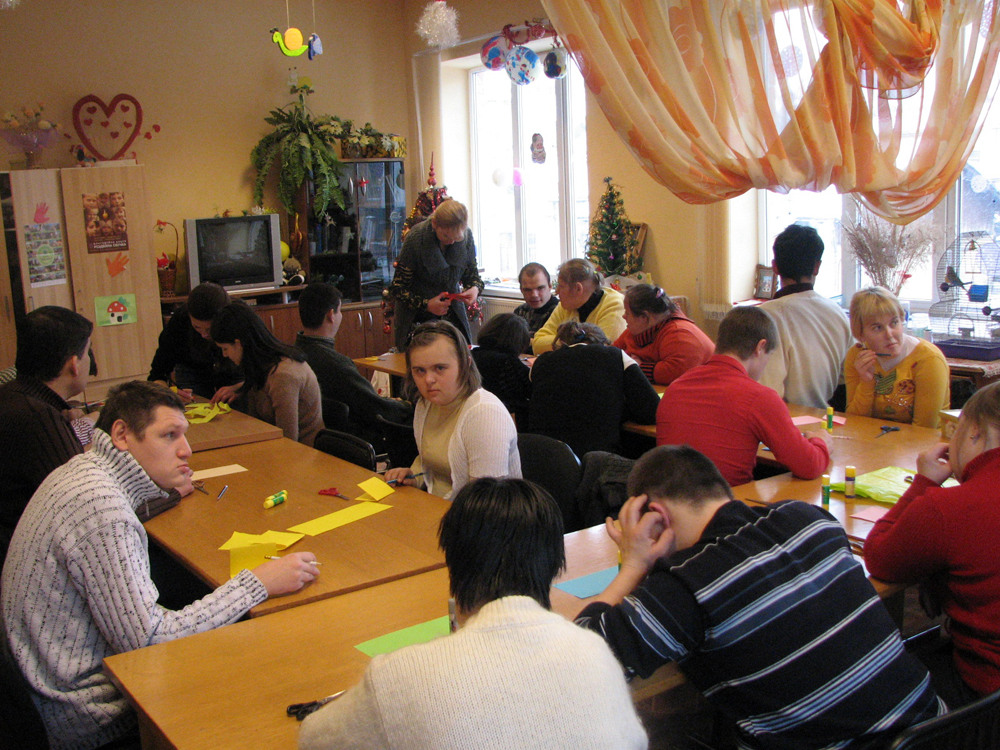 At the centres Caritas Ukraine established for the disabled, Parents’ Tea Time is a regularly scheduled event. These gatherings allow parents to share their joys and concerns, and to support one another. Summer camps are organized, as are joint excursions to see the country’s natural beauty, historical sites and cultural establishments, they hold support groups, etc. Parents find the most resources in the support groups and Caritas workers give them moral and psychological support.
At the centres Caritas Ukraine established for the disabled, Parents’ Tea Time is a regularly scheduled event. These gatherings allow parents to share their joys and concerns, and to support one another. Summer camps are organized, as are joint excursions to see the country’s natural beauty, historical sites and cultural establishments, they hold support groups, etc. Parents find the most resources in the support groups and Caritas workers give them moral and psychological support.
While parents and staff were attending the meetings, tens of their disabled children took part in workshops. The workshops were made possible by volunteers. There was a Cut-Outs workshop and one for paining on canvas. They were led by Mayana Kvyatkovs’ka, a young talented artist who works on restorations at the National Museum of L’viv, and Maryan Pyrozhok, a local painter.
“Our young clients loved Mr. Maryan’s workshop! He help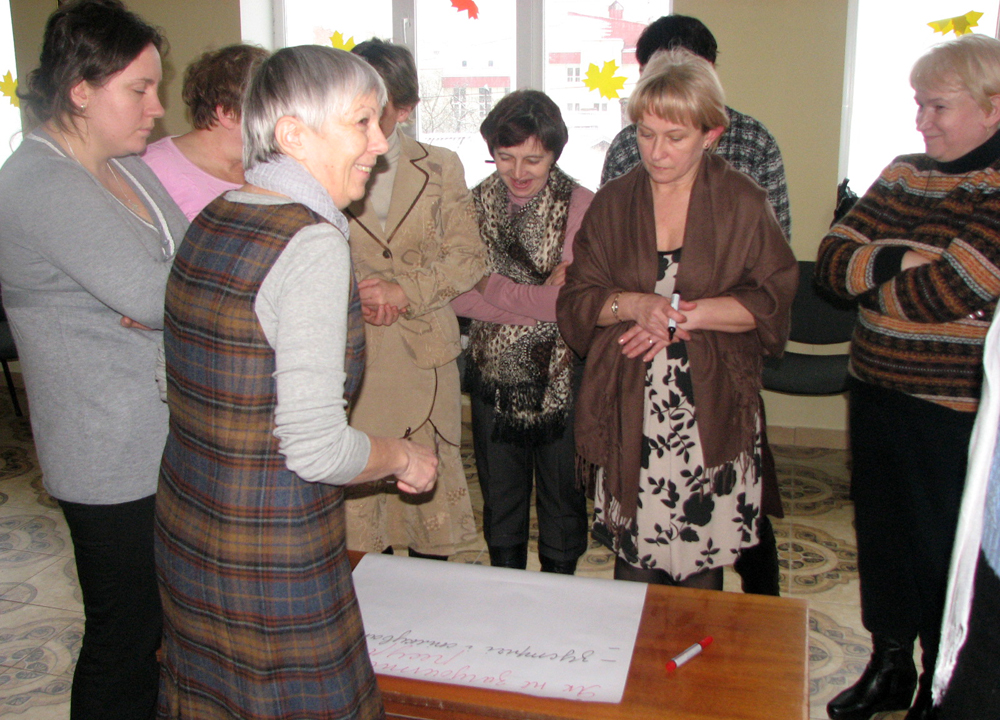 ed them with their technique, explained how to paint on canvas, how to feel colours and use improvised materials such as cardboard and old canvas. Watching, from a distance, an observer would be unaware that people with disabilities were painting. Every person in the studio was creating a masterpiece which was unique and beautiful.
ed them with their technique, explained how to paint on canvas, how to feel colours and use improvised materials such as cardboard and old canvas. Watching, from a distance, an observer would be unaware that people with disabilities were painting. Every person in the studio was creating a masterpiece which was unique and beautiful.
It is important to expose our clients to new things; for them to meet people from other centres. This helps them to better understand the world, develop their talents and ideas, find new friends and influence the attitudes of the general public,” explains Natalya Zahayko, Director of the Centre for Recreation and Rehabilitation at Caritas L’viv UGCC.
The “Network of Centres for Social Integration of People with Special Needs in Ukraine” is in its final phase. It has been funded by Caritas Italy and Caritas France for four years. Thanks to these donors and to the work done in four branches (Drohobych, Striy, L’viv, Ivano-Frankivs’k) hundreds of special needs individuals and their families obtained the help they needed—psychological support, becoming integrated into mainstream society, obtaining a high level of independence, and the ability to adapt.
People with special needs are one of the most vulnerable groups in Ukraine. According to statistics from the Ministry of Employment and Social Policy and the Ukrainian State Committee of Statistics, special needs individuals make up 10% of the total population; of these 6% have mental disabilities. 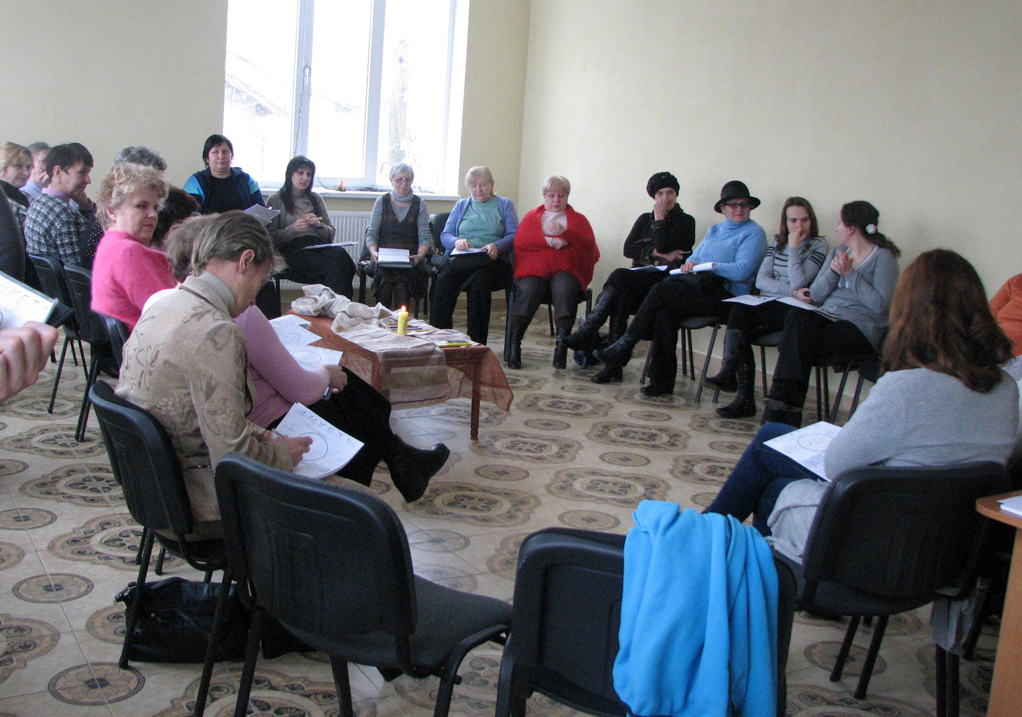 People with physical disabilities are disproportionately affected by problems of accessibility in education, the labour force, healthcare, technical equipment and the ability to receive information that prevent them from being fully integrated into mainstream society.
People with physical disabilities are disproportionately affected by problems of accessibility in education, the labour force, healthcare, technical equipment and the ability to receive information that prevent them from being fully integrated into mainstream society.
Ms. Sukharyeva says: “Caritas Ukraine’s Centres are not only a place for the disabled and their families to socialize, learn, and obtain psychological and moral support. These Centres also reveal the gifts these special people possess to society at large and to the nation as a whole! I was convinced of this again during our latest seminars.
In the last 4 years it was especially nice and significant to see:
• More clients visiting our Centres ,
• the organizational structure of the network strengthening because of uniform regulations and standards that were developed to guide the work done with people who have special needs,
• The professional qualifications of our staff increase
• Volunteers (including students and young professionals) working with clients, ,
• Parents and family members obtain qualified moral and psychological support from Caritas Ukraine professionals, and taking part in a series of specialized seminars and trainings,
• Local residents becoming more aware of the needs and problems special needs individuals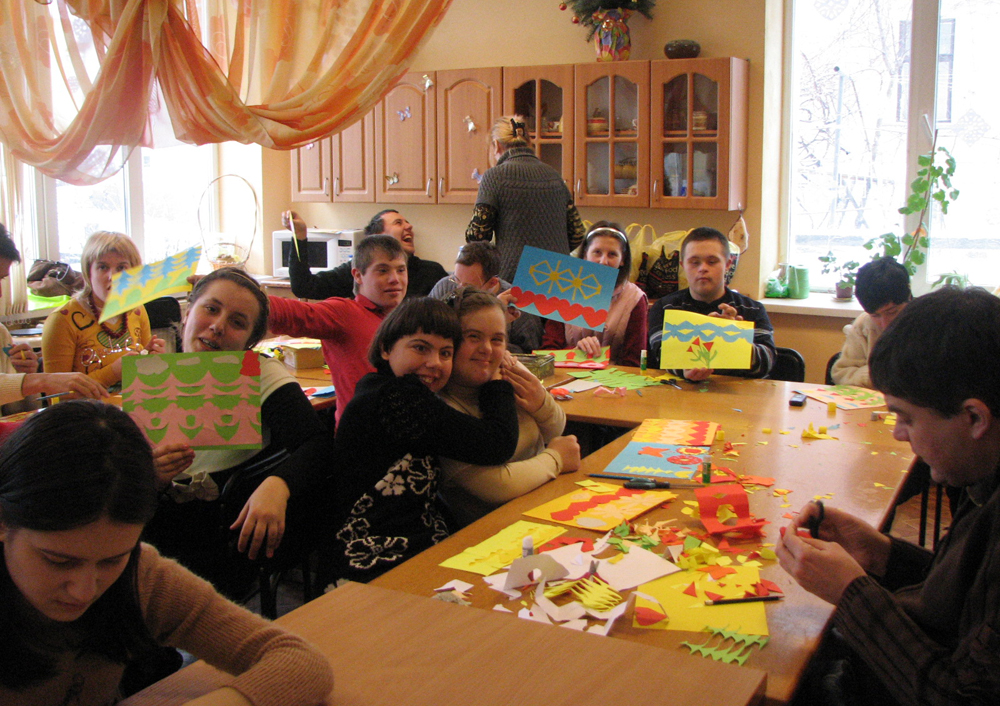 face.”
face.”
Today we must develop a mechanism that would allow us to socially integrate and rehabilitate special needs individuals. Caritas Centres strive not only to diversify their activities, but to develop new effective mechanisms for social integration and to cooperate with state structures, community organizations, advisory councils and departments.
Tags:

